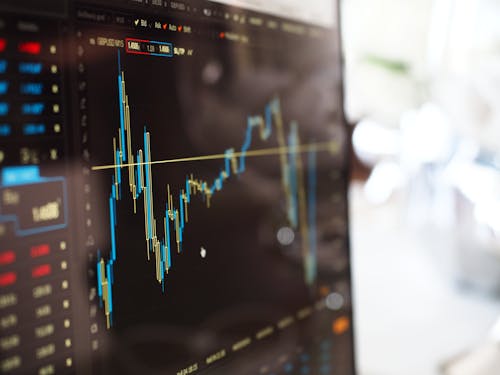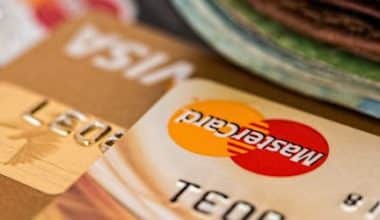For you to be here, it means that you might have gotten a little insight into the importance of buying shares in Nigeria and how it can help you reach that financial goal. But then how do you buy these shares in Nigeria and what are the important points you need to take note of?
Before we go into those details, I just want to use a second to remind you that investing in shares in Nigeria, whether global companies or buying shares on the Nigerian Exchange Group is easier than you might think. Now that you have acquired the right mindset, let’s get into details!
Key Points
- Shares represent ownership in a company, giving you a stake in its profits, assets, and decision-making processes, depending on the type of share you own.
- In Nigeria, you can invest in various types of shares including common, preferred, growth, and value shares, each offering different benefits and risk profiles.
- Key investment options available in Nigeria include real estate, mutual funds, company stocks, bonds, commodities, cash equivalents, and ETFs, each with unique characteristics and potential returns.
- Understanding the legal and regulatory landscape, including bodies like the SEC, CSCS, and NIBSS, is crucial for compliant and effective investing in Nigerian shares.
- To start investing, you must choose between buying shares directly or through a brokerage firm, opening and funding a brokerage account, and then selecting and monitoring your investments carefully.
Shares can be referred to as a certain percentage of stake in the ownership of a company or corporation whose shares you purchased. From owning shares, you get to own a slice of a company’s profits and power. You will have your own fraction of the company and whatever benefits, assets, or earnings that come with it, depending on the type of share you own. And of course, you know that owning shares can be a good channel to build some wealth over time, although that might not always be the case. But that’s exactly why I am here to be your guide.
If these shares are owned by external investors, they are then known to be outstanding shares. Say, for example, Company XYZ has 500,000 outstanding shares and you own 50,000 shares. This means that you own 10% of the stake in Company XYZ. Does that make sense?
Since some companies are either public or private, it only signifies that the private ones are usually owned by either founders, managers, or private investors. Then the public company can also share its shares amongst the public, company owners, founders, and board of directors.
Before diving into the details of buying shares in Nigeria, here’s a handy checklist to guide you through the process and ensure you cover all essential steps:
Anything that has to do with money will require that you trade carefully and to do that, you need to be soaked in information and that is the point of this section. Let’s go over some details you need to be aware of:

Shares come in different forms and each form has its special benefits when owned in a company. our options range from common shares or ordinary shares, preferred shares, growth shares, to value shares. Let’s quickly look at them individually:
- Common shares: When you buy common shares, you will automatically have the luxury of voting at a company’s meeting and have the right to its dividends.
- Preferred shares: This type of shares just offers you a higher claim on earnings and assets.
- Growth shares: The growth shares mainly cover investment in companies expected to grow at an above-average rate compared to other companies on the market.
- Value shares: The last on the crib is always open for investment, though it comes off as undervalued, you can still go for it if you wish to.
Mind you, when choosing any of these shares to start with, I’d advise you to be careful, I will also give more tips on this as we advance in this article. Considering that these are the types of shares we have, let’s quickly look at some tangible shares that can be purchased in Nigeria.

Some of the tangible shares that are most common here in Nigeria include:
- Real estate: Real estate is one of the hottest investments in Nigeria today. Almost everyone is into real estate and looking for something real that they can diversify into and make their portfolios more stable. That this stock market is being popular shouldn’t just be the only reason for investing in it.
- Mutual funds: This one is quite different. It works by a professional manager taking a total sum of investments from many investors and then putting it into stocks, bonds, cash, or other assets. Then by pooling the money and buying either bonds, stocks, or the rest, it has been invested.
- Company stocks & equity: Stocks are also a tangible investment in Nigeria. It’s simply a part of a company you own. So as you are buying stocks from a company, you are also buying shares as well. Then equity is another name for stocks.
- Fixed income and bonds: Bonds are loans to corporations and governments. They usually have fixed dates and the borrower sends the coupon regularly either every six months or one year. As an investor, if you want steady returns over a long time, just go for bonds.
- Commodities: The raw materials that are used to make other goods are called commodities. Gold, oil, and corn are all examples of commodities.
- Cash and cash equivalents: Most people invest in cash and things that are like cash. I consider this as being safe because you won’t lose value as dramatically as stocks might.
- Exchange-traded funds: ETFs, exchange-traded funds, are mutual funds that you can trade like stocks. However, they have lower fees, more liquidity, and are easier to understand.
All these shares should be thought of dearly before deciding to venture into any. Let’s go over more important details you need to know.
Legal and Regulatory Maze

What are investments without understanding the legal and regulatory bodies involved in them? Well, we have the three main bodies. The first is the Securities and Exchange Commission (SEC), then the Central Securities Clearing System (CSCS), and lastly, the Nigerian Inter-Bank Settlement System (NIBSS).
SEC is known as the top dog in the business, and this body specializes in overseeing the capital market in Nigeria. Then the CSCS is in charge of depositories and clearing house for the NSE, while the NIBSS is responsible for providing a platform for electronic payment and settlement.
Also, take note of the taxes and dues associated with investing in shares and be well to do clear justice to that.
Two Forms of Stock Market Investment in Nigeria
If you have an interest in the stock market in Nigeria, you might as well explore the two available options to choose from. It is either you buy stocks directly or invest through a stock brokerage company. But I just want you to remember that when going for any of the two, just research, and consider your goals and how much you know.
#1. Buy Stock Straight
As I have talked about this, you will just need to buy your shares directly from that company in Nigeria without involving a stockbroker or investment firm.
#2. Investing in stocks through brokerage firms
This option allows you to hire a stockbroker to help you buy and sell stocks. A stockbroker in this end simply means a licensed professional whose job is to help clients buy and sell stocks on your behalf in the NSE. It’s just like having a personal shopper. As a beginner in the investment of shares, this professional can come in handy. They also go the extra mile to provide investment decisions and advise you about market conditions and trends.
How to Open and Fund a Brokerage Account in Nigeria

If you want to get in on this and you don’t know how to, I will help.
#1. Choose a broker
The first step is to source for a broker and while on this remember it’s not just about having a reputable one, does he/she know their job? Can they handle your shares? Remember it’s your money in the line. You need to select the best in the market.
#2. Application Process
This second step will require that you open up an account and you will need a form and necessary required documents for this process to be swift.
#3. Identity Verification
When you finally meet up with the criteria for the application, then the next step is to verify your identity. This will ensure the safety of your account in the long run.
#4. Fund your account
Once your account is verified and accepted, you will receive a unique Clearing House Number (CHN) to enable you to put some pennies in your trading account. Funding your account is flexible and can work with either a bank transfer, card payment, or even USSD!
#5. Its trading time
Once you have funded the account and done all the deliverables, you can now enter the world of trading with your broker and enjoy as much as you want. Just make sure you trade carefully.
Finally, we have landed at the main pain point of this guide, now you have to listen carefully because if you follow up with these steps you will be on your way to becoming a successful Nigerian stock market investor.
Here’s your step-by-step guide on how to buy and sell shares in the Nigerian Stock Exchange (NSE).
#1. Choose Your Stocks

Just after you have found a stockbroker and successfully opened a CSCS account, you will then need to go through in-depth research with your broker to decide on the best share you want to go for. While this selection goes on, always remember to observe the company’s performance, market trends, and industry outlooks. Also, seek advice from your broker if you are ever confused about anything.
#2. Place Your Order
After the much-needed research and finally going with a stock, you will then need to specify the quantity and price of the shares you’re interested in buying or selling. Always be specific with your numbers. The broker you are working with will take over this and execute it in the NSE.
#3. Execute Your Order
Once your order has been placed, you will just need to relax and wait for it to be matched and executed in the NSE. This process could take a few minutes or a few hours, depending on market conditions. Just exercise some patience.
#4. Confirm Your Transaction
After the long wait depending on how the market is, you will get a contract note as soon as your order is executed. Your broker will explain to you that this simply means that your transaction was successful.
#5. Settle Your Transaction
After celebrating the good news, you still need to settle your transactions. This will require that you are either paying or receiving the net amount of your transaction through the Central Securities Clearing System (CSCS) and the Nigeria Inter-Bank Settlement System (NIBSS). This is the final payment that seals the deal.
#6. Monitor Your Investment
After you have launched your shares, you will then need to keep your tabs on it. Keep an eye on how your shares are performing and make adjustments when it is necessary.
What to Look to for when Investing in the Nigerian Stock Market
Here are things you should consider before purchasing shares in Nigeria
- Performance and finances of the company: Before buying shares from a company, you need to look into that company. What are their finances and performance like? How much money do they make, and spend and how good are they compared to the other companies?
- What’s going on in the market: Keep tabs on the stock market to always be updated on whatever is going on with the economy of the country. Once the market is going well and in good shape then you can go for it. If it’s not, just wait it out.
- Government stability: Also stability in government can have a significant effect on the stock market. Look for news about elections, political unrest, and changes in government leadership. These things can cause uncertainty and cause stock prices to change and it might affect you if you are not conscious.
Wrapping Up
At this juncture, I won’t need to say much because I have ensured that this guide of mine has everything you need to guide your steps as you buy your shares in Nigeria. However, always remember that you can’t tell the prosperity of shares by their popularity.
- How To Buy Shares On Facebook From Nigeria
- How to Start a Shipping Company in Nigeria 2023
- How to Start a Construction Company in Nigeria






